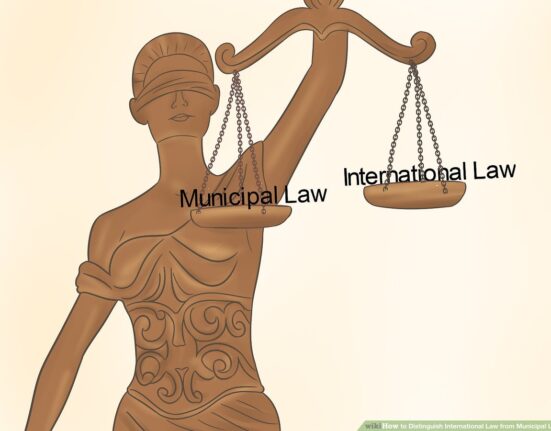Muskan Jain, a 4th-year Law Student at Symbiosis Law College, Nagpur has written this Article “AN INTRODUCTION TO HUMAN RIGHTS“
Meaning and definitions of Human Rights – Introduction to Human Rights
Human Rights are the rights that belong to each and every human being. It aims to provide dignity, equality, fairness, freedom, justice, peace, and independence in thoughts and opinions. It does not discriminate on the basis of race, gender, religion, place of birth, or economic status. These rights once given cannot be taken back unless and until the rights given are misused against law and goes against national security. Human Rights are part and parcel of International Law which is contained in treaties and declarations that mentions basic rights. Also, domestic laws of countries have their own set of rights.[1]
There lies the difficulty in finding the exact definition of Human Rights but some jurists have defined Human Rights differently:
- According to Susan Moller Okin: “Human Rights as a claim to something of the crucial importance of human rights”.
- According to Dr Purohit: “Human rights are the basic values which underlie the human being, born in any part of the world, are equal in dignity and rights”.
Human rights as rights are generally acknowledged as part of those rights which are given by birth and the rights which are inalienable, inherited rights which should be free from discrimination to execute these rights the duties lie upon the state and its subordinate authorities, thus rights are protected by the state.
Concept Of Human Rights
The concept of Human Rights in the first place relies upon providing a quality life to people and the growth of their self-development. These rights aim to develop basic standards for people without which providing quality life and dignity is not possible[2]. Human Rights as mentioned before are universal, inalienable and interdependent. These rights are indivisible; this can be elaborated as each and every right whether it is recognized by local laws or not are important and cannot be taken away or separated from one another here political order or governments step cannot take these rights.
Human Rights are also interdependent as these rights include several other rights like political, social, cultural, economic, civil, and social rights. All these rights are interdependent upon one another and cannot be separated by domestic country law or cannot be decided by authorities to provide one Human Right and ignore other rights and these rights are internationally recognized.[3]
Human Rights Include rights like the right to life and personal liberty, freedom of thought, speech and expression, equality before the law, etc. Violating these rights can be compared to a person not being treated as a human being. These are very basic rights that cannot be taken away and which should be recognized by statutory laws and should be treated as an obligation to promote Human Rights[4].
History of Human Rights
The evolution of Human Rights has been seen in 539 BC for the first time, when it was seen that the troops of Cyrus the Great conquered Babylon, liberated the slaves and announced that the right to choose religion and racial equality would be given to all the people and these rights were later treated as principles which were recorded on baked-clay cylinder known as the Cyrus Cylinder.
After this, in the year 1215, the proclamation of Magna Carta was seen and it evolved the principle of the “Rule of Law”. It also defined the basic rights and liberties of all individuals and provided equal protection, it also offered imprisonment and prosecution. The introduction of these principles was mentioned in the English Bill of Rights which was represented in the Magna Carta. The bill gave power to parliament over monarchy and also mentioned constitutional rights and civil rights necessary for the citizens of England.
Later The Bill of Rights was also referred to by different nations like the US in their Bill of Rights in the year 1791. In that year 1628, the rights of people were recognized by The Petition of Rights. In the year 1776 The United States declared their independence and revealed the right to life, liberty and the pursuit of happiness, this was seen as a big step at that time.[5]
After the Independence of the US, in the year 1789, the France National Assembly declared the rights of men and of citizens, which Introduced the basic rights of human liberties, acknowledged by the French Revolution. The declaration was based upon the principles like right to liberty, right to private property, equality before law etc. Judicial rights and freedom of speech and expression, freedom of religion were also recognized.
After this in the year 1948 The Universal Declaration of Human Rights was introduced where the first document listing 30 rights to which every human being is entitled was mentioned here UDHR aims at providing and targeting rights like The UDHR urges the member nations to promote a number of human’scivil, economic and social rights, asserting these rights are part of the “foundation of freedom, justice and peace in the world”.[6]It was after all these conventions steps taken by several nations that Human Rights have been established.
Kinds of Human Rights – Introduction to Human Rights
There are several kinds of human rights which are also a part and parcel of UDHR that can be classified as follows:
- Social Rights:
“Social rights are the rights which are targeted to society at large and included basic necessities these rights included
- Right to freedom from interference with privacy, family, home etc.
- Right to marry and have family and right to property.
- Right to education healthcare, food clothing, shelter”.
For a Detailed article on Social Human Rights in India Refer to https://sociallawstoday.com/analysis-of-minorities-human-rights-in-india/
- Civil Human Rights:‘
- “Civil right includes equality among people, right to life, liberty, security etc.
- Right to freedom from slavery and servitude.
- Right to freedom from torture”.
- Political Human Rights:
“ Every individual is given political right so that everyone has its own individual political opinion. Furthermore anyone can take part in political process these rights includes
- Rights to life, nationality.
- Right to equality before law and equal protection of law.
- Right to judicial remedies, fair trial and freedom from arbitrary arrest, detention or exile
- Right to freedom of thought, expression, belief, faith, conscience and religion
- Right to freedom of peaceful assembly and association
- Right to take part in government affairs and equal access to public service”
For a detailed article emphasizing on individuals, political rights refer to https://sociallawstoday.com/critical-analysis-of-womens-human-rights-in-india/
- Economic Rights:
“To safeguard and ensure the economic interest of the human being, some rights are also included as economic rights.
- Right to social security
- Right to work and the right to equal pay for equal work
- Right to form trade unions
- Right to rest and leisure
- Right to food, health and adequate standard of living.”[7]
- Cultural Rights:
“As human life is full of customs, traditions and religions which changes from region to region thus to safeguard all these cultural rights there are certain rights given such as:
- Right to participate in the cultural life of the community,
- Right to enjoy the art and to share in the scientific advancement and its benefits
- Right to the protection of the moral and material interests resulting from any scientific, literary and artistic production of which the individual is the author
- Right to a social and international order in which the human rights as provided in the Universal Declaration can be fully realized.”[8]
All these rights are provided to protect the best interest of human beings and to safeguard all the rights and prevent discrimination on any basis.
Objectives of Human Rights
- The very first objective of human rights is to protect human beings from any kind of discrimination and injustice all over the world.
- The second objective of Human Rights is to develop individual self-respect.
- The third objective is to value human dignity.
- The Fourth objective of Human Rights is to promote and develop respect, understanding and appreciation of diversity.
- The fifth objective of Human Rights is to promote democracy, Social Justice, friendship and brotherhood to gain unity in diversity.
Features of Human Rights- Introduction to Human Rights
- Human Rights are universal: Human Rights are given by birth to each and every individual and no one can be denied of his rights. The name “Human Rights” only suggests that as it believes in equality and not the right which is only provided to richer section of society. It is irrespective of caste, sex, religion, place of birth etc. and cannot be discriminated thus it is universal.
- Human Rights are Inherent: It is not any national or international authority that provides human rights. Neither any person nor any authority does not guarantee human rights but it is provided to every human without any intervention.
- Human Rights are Fundamental: To ensure right to life and Dignity human rights are important and thus fundamental as without which it will have no significance.
- Human Rights are Imprescriptible: It depends upon humans whether to use human rights or not. But human rights by it-self cannot be lost and always will be there thus Human rights cannot be prescribed and are Imprescriptible.
- Human Rights are Inalienable: Human Rights are inalienable because they cannot be taken away at any point of time. As well as they are not dependent upon caste, creed, religion, sex and nationality of an individual.
- Human Rights are Dynamic: With time and political, social and cultural changes Human Rights also change as per the laws of the state, these changes includes changes in law where judges interpret laws accordance with social values.
- Human Rights are never absolute: Absolute rights can be misused by some section of society. In this dynamic social environment, some restrictions are necessary, including restrictions in enjoyment of rights and freedoms. Thus it is the state which puts some restriction and that is why human rights are not absolute.
- Human Rights are have limited state power:As state is the one which ensures that human rights are being followed and also holds duty to be answerable if something goes wrong in relation to human rights. Hence state has limited power over Human Rights and state also has to comply with the International Human rights instrument so, that when state fails to comply with Human Rights there is competent authority to be approached and relief to be awarded thus the powers are limited.
- Human Rights are Essential and necessary:To uplift the society and ensure the welfare of people morally, physically, socially and spiritually Human Rights are essential. These Rights will help in fulfilment of purpose of human life and also will ensure qualitative rights to each individual.
- Human Rights are in connection with human dignity:There should be no discrimination on any basis and everyone should be treated equally.
- Human Rights are irrevocable: Human Rights cannot be taken away from any individual as these rights are of social nature and belong to every human being. No government has a power to take these rights back unless and until the person has gone against the state and is proving to violates society norms thus Human Rights are irrevocable.
- Human Rights are Participative and Inclusive:All people should have access to right to participate and access the information relating to the decision. As these decisions ultimately affect their lives and well -being.[9]
Responsibility to protect Human Rights
Human Rights are a set of rights along with responsibilities which are made available to each and every person. Every person should enjoy their Human Rights and no one should interfere with others’ rights. Thus any individual while performing his duties should ensure that he is not infringing on others’ human rights.
The main responsibility of protecting the rights lies upon the government whether its Human Rights or the rights of the nation as the government has to maintain the law and order of the state to protect and respect human rights. The government has to help the people to implement these human rights. For example, if the right to education is a right then it’s the duty of the government to provide necessary facilities and services to people. As Government is elected by the people thus the primary responsibility to protect human rights are with them. But the government is not the only body to be held accountable it’s the people who enjoy their rights that should not harm the rights of others.[10]
Conclusion– Introduction to Human Rights
Human Rights are a set of rights that are provided to every human being and these are basic rights to live life respectfully and peacefully. Moreover, violation of human rights should be no option to anyone as it’s been more than a decade since these rights are recognized and universally acceptable. The Universal Declaration of Human Rights has agreed to all the rights and tries to protect these rights. The definition of human rights its origin, functions and kinds all indicated how important these rights are and cannot be violated, as protected by international law.
Disclaimer: This Article is part of our Monthly article writing competition. You can also Participate
BIBLIOGRAPHY
(n.d.).
(n.d.). Retrieved from https://www.theadvocatesforhumanrights.org/human_rights_basics
An Introduction to Human Rights. (n.d.). Retrieved from Australian Human Rights Commission: https://humanrights.gov.au/
Characteristics of Human Rights. (n.d.). Retrieved from https://thefactfactor.com/facts/law/legal_concepts/human-rights/characteristics-of-human-rights/13045/
CPG. (2019, june CPG). The Basic Concepts of Human Rights. Retrieved 2021, from http://www.cpg-online.de/2019/11/01/basic-concepts-of-human-rights/
Kamruzzaman, M., & Das, S. K. (n.d.). The Evaluation of Human Rights: An Overview in Historical Perspective. American Journal of Service Science and Management.
Nitisha (Ed.). (n.d.). Human Rights in India: Characteristics and Types. Retrieved from YourArticleLibrary: https://www.yourarticlelibrary.com/essay/human-rights-in-india-characteristics-and-types-2/47118
Sutto, M. (2019, March). “Human Rights evolution, a brief history”. Retrieved from CoESPU – Center of Excellence for Stability Police Units: https://www.coespu.org/index.php/articles/human-rights-evolution-brief-histor
[1](htt3)
[2](Kamruzzaman & Das)
[3](CPG, 2019)
[4](Kamruzzaman & Das)
[5](Sutto, 2019)
[6](Kamruzzaman & Das)
[7](Nitisha)
[8](Nitisha)
[9](Characteristics of human Rights)
[10] (An Introduction to Human Rights)
![]()







Leave feedback about this